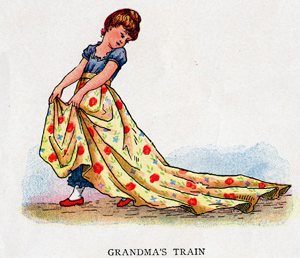
Children interacting with rhymes throughout the ages enjoy engaging in dramatic dress-up plays. The conventional theory surrounding dress-up rhyme origin evolves centuries ago with no sound proof arguments. Although it appears just like a play, a child’s brain develop more than one can imagine. The play depicts the work of a child from early childhood. The social, physical, emotional and cognitive benefits that children acquire include;
1. Brain Building
Rhyme engages children’s ways of thinking. Kids below five years of age participate in dramatic play to remember what they’ve heard or seen. As the children grow, they need to learn and get to know several activities through simple interactive games such as rhymes. What the mothers do in the presence of a child while performing chores is what a child will tend to imitate.
2. Vocabulary Building
Nursery rhymes are a fundamental tool that builds vocabulary to every child depending on what the character says in the play. For the young children, rhymes give them an opportunity to kick-start their ability to speak and expand vocabularies with different words and phrases as some are rarely used ordinarily in conversations.
3. Problem-Solving
Dressing rhyme plays equip children on how to make decisions particularly on purpose and mode of dressing. The verse talks more about children dressing. Therefore, enabling them to practice problem-solving skills such as deciding on kind of props and costumes elements a character needs to present out any scenario.
4. Emotional Development
Children in real life experience weird and scary situations regularly in real life creating constant fears in them. Such emotional feeling arises when they see parental advisory videos on TV or witnessing real accidents. When they participate in dress-up play, they process fears that make sense of the environment to overcome the helplessness of their feelings.
5. Motor Skills
Children learn motor skills while practicing dress-up play that involves putting on varying types of clothing. When children engaged in the dress-up game, they apply the skills in scenarios such as twirling like a ballerina, singing like a mockingbird or jumping like a superhero.
6. Imitation
Kids in their childhood are imitative in nature. what they learn about the world help them to foster educational experience by copying what their parents and teacher show them. Through dressing rhyme play, they also explore other peoples’ feelings, words and action by imitating them.
7. Socialization
Dressing rhyme builds children’s cooperation and turn-taking experience. Plays improve on their mode of negotiation as they agree on rules set on rhymes. Children also develop an interest in their parents as they learn mode of interaction.
8. Imagination
Children below five years old have limitless imaginations that have not been hardened by real-life events. The fact remains that imaginative rhyme play in childhood is essential to creative thinking in the future years.
Engaging children in dress-up play give their imaginations free reign without limitation of their adulthood life destiny.